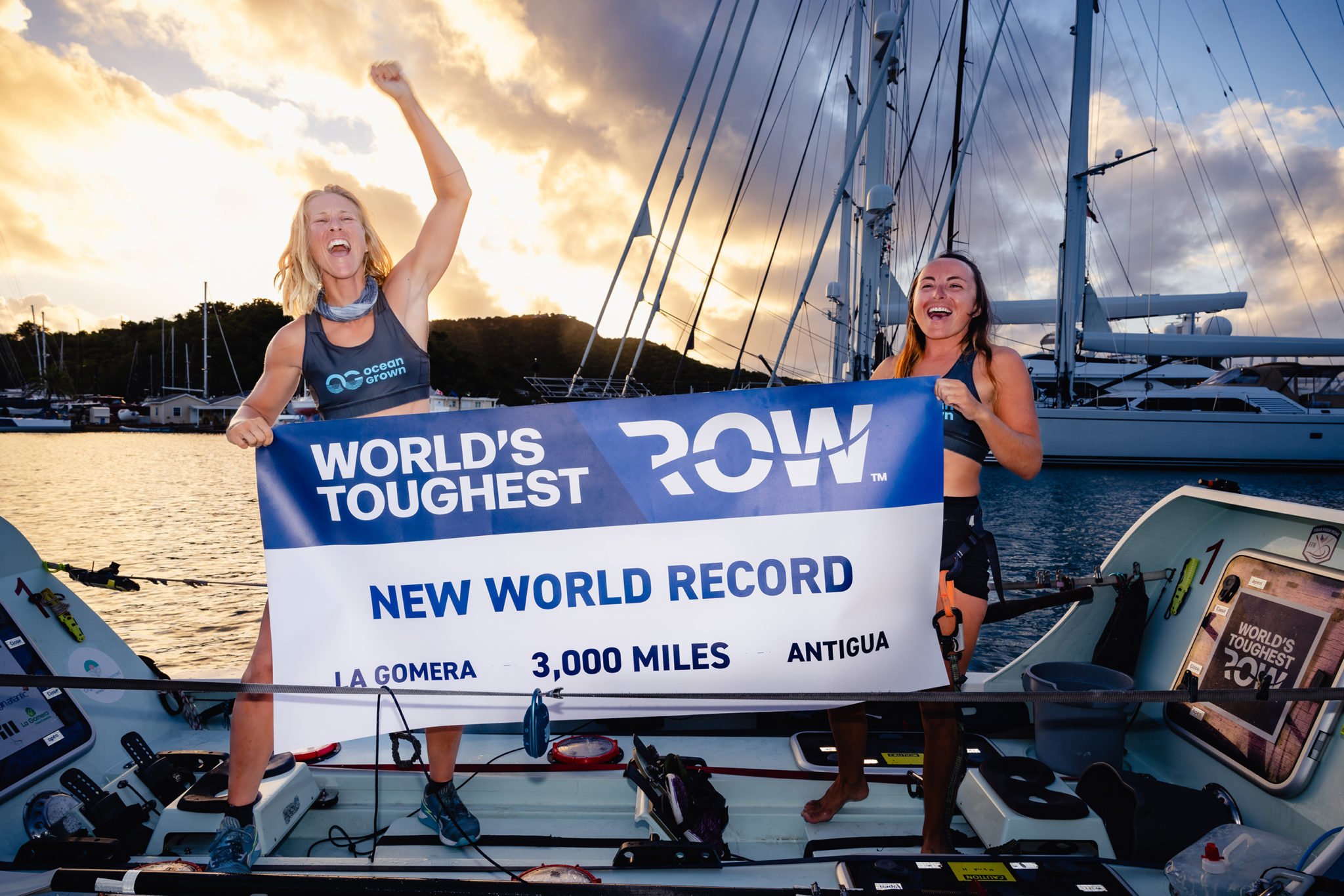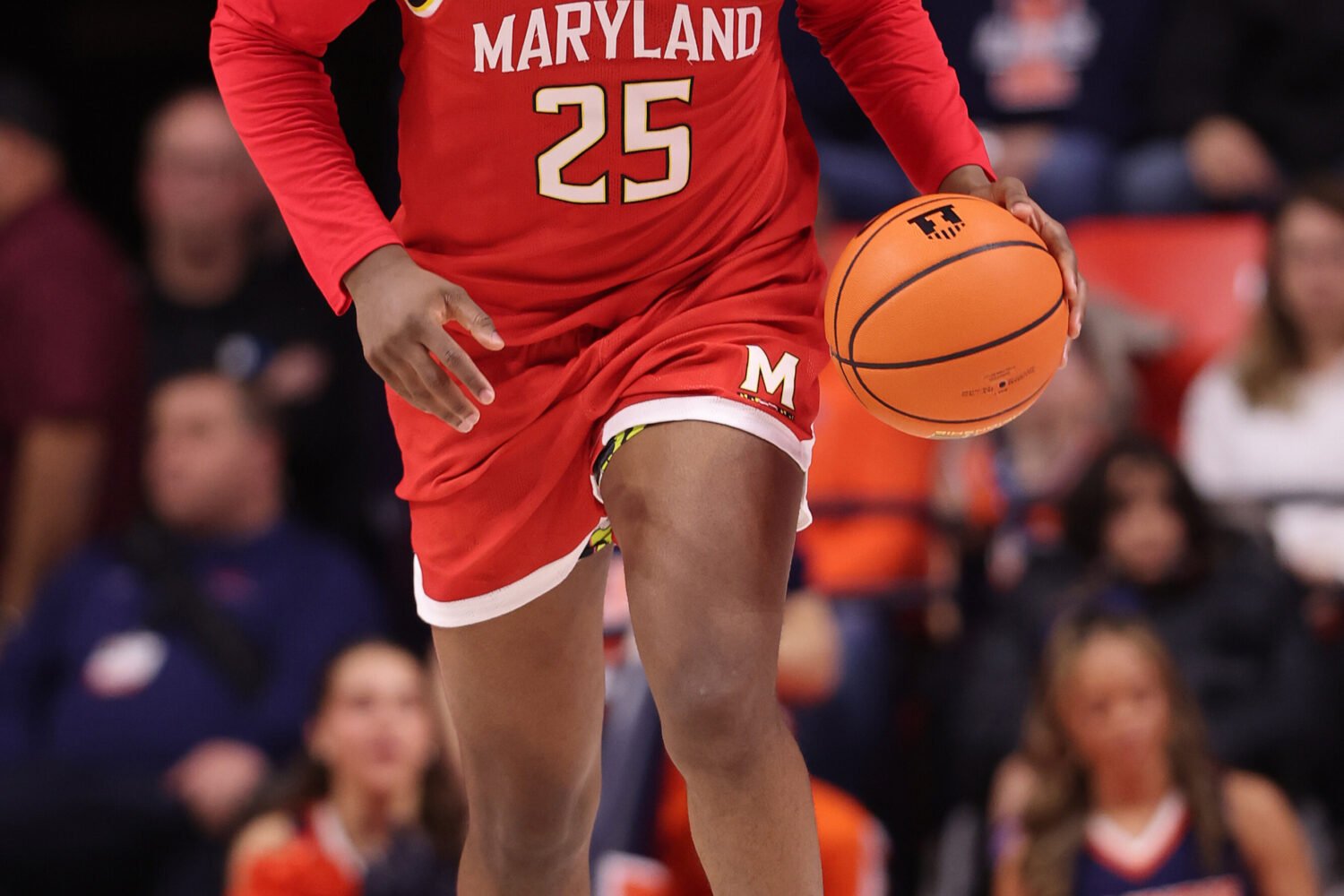When Lauren “Nini” Champion from Annapolis and Lisa Roland touched down in Antigua on January 27, it wasn’t for vacation—and it definitely wasn’t by plane. The pair got there the old-fashioned way: rowing across the ocean two hours at a time, setting a world record for the fastest trip across the Atlantic by a female pair. The journey happened in 45 days, one hour, and 27 minutes.
Champion and Roland, known as Team Ocean Grow, set off on December 13, 2023 from La Gomera, a tiny isle in the Canary Islands southwest of Morocco. They were competing in the “World’s Toughest Row,” a race to traverse the Atlantic Ocean. Three thousand nautical miles and four exhausted arms later, the duo arrived at the Caribbean port of English Harbour. Not only had they broken the previous record, but they did it with six hours to spare.
“There was a moment mid-Atlantic where we had no wind and thought the record wouldn’t be achievable,” says Champion. “But that wasn’t our reason for rowing. And as soon as we accepted that, the conditions picked back up.”
Indeed, Champion and Roland’s main goal was to fundraise for their scholarship program, Bridges Over Water, which helps children formerly in the foster care system enter the maritime industry, where both women work. The cause is personal for Roland, who discovered sailing at age 19 after she aged out of foster care in Canada. Roland credits the maritime industry for helping turn her life around.
“I was homeless, I struggled with addiction, a lot of those things that come with growing up in the care system,” Roland said. “Now I’m captain of a multi-million-dollar boat…our fund is gonna be able to make that change possible for other young adults.”
For Team Ocean Grown, the Antigua finish line also marks where their journey first began three years ago. The pair met at the race in 2020 while cheering on colleagues. Champion, a University of Maryland graduate who grew up sailing with her family in Annapolis, was also visiting her brother, a fellow member of the sailing industry.
“We had this moment of going from ‘this is an insane thing to do’ to ‘hang on, I think we can do that,’ and we had that moment independent of each other, which was cool,” says Roland.
There was just one problem: neither were professional rowers.
“We knew we were well equipped to take on a challenge like this, it was kind of just learning how to do it,” Champion says.
So learn they did, for the better part of three years. Champion found a rowing team back home in Maryland, and Roland, who was working on a yacht in Greece, trained with the country’s national rowing team.
The most valuable practice, Champion says, was getting accustomed to the boat they would live on for a month and a half. Just 25 feet long, the Invictus was built by Charlie Pitcher, a rowing world-record holder who helped Champion and Roland train for their expedition. The boat didn’t have electricity or cover for the elements, and power came from a series of solar panels, used to heat freeze-dried meals and desalinate water in the afternoons. Despite the rugged conditions and a partial capsize, Champion says being on the open sea wasn’t scary.
“A lot of people ask us if being in the open water is uncomfortable,” Champion said. “But we seek so much comfort from it, that we kind of long for it when we’re on the shore.”


















